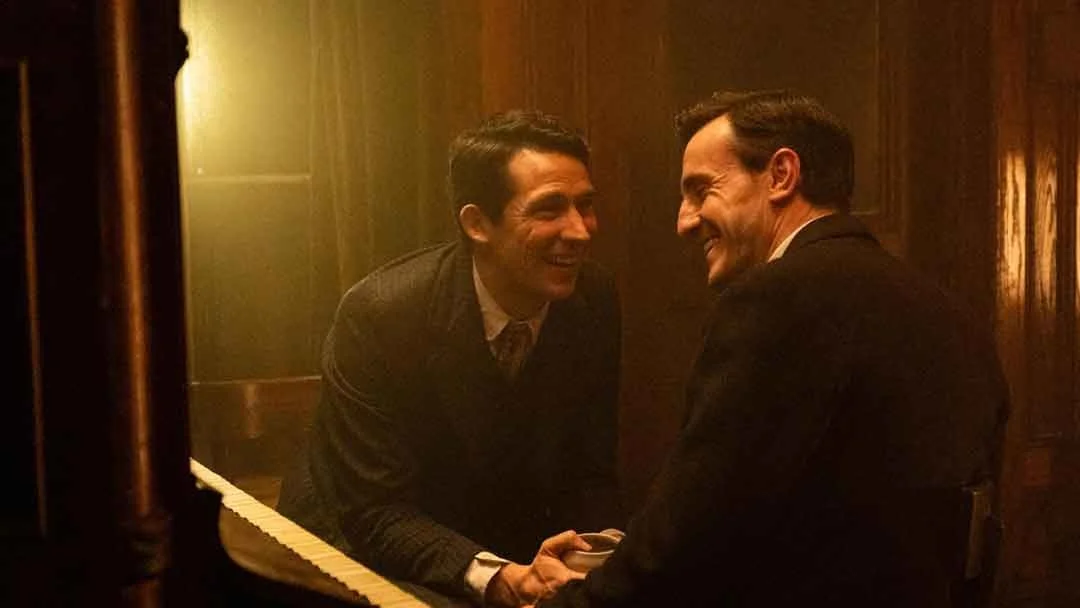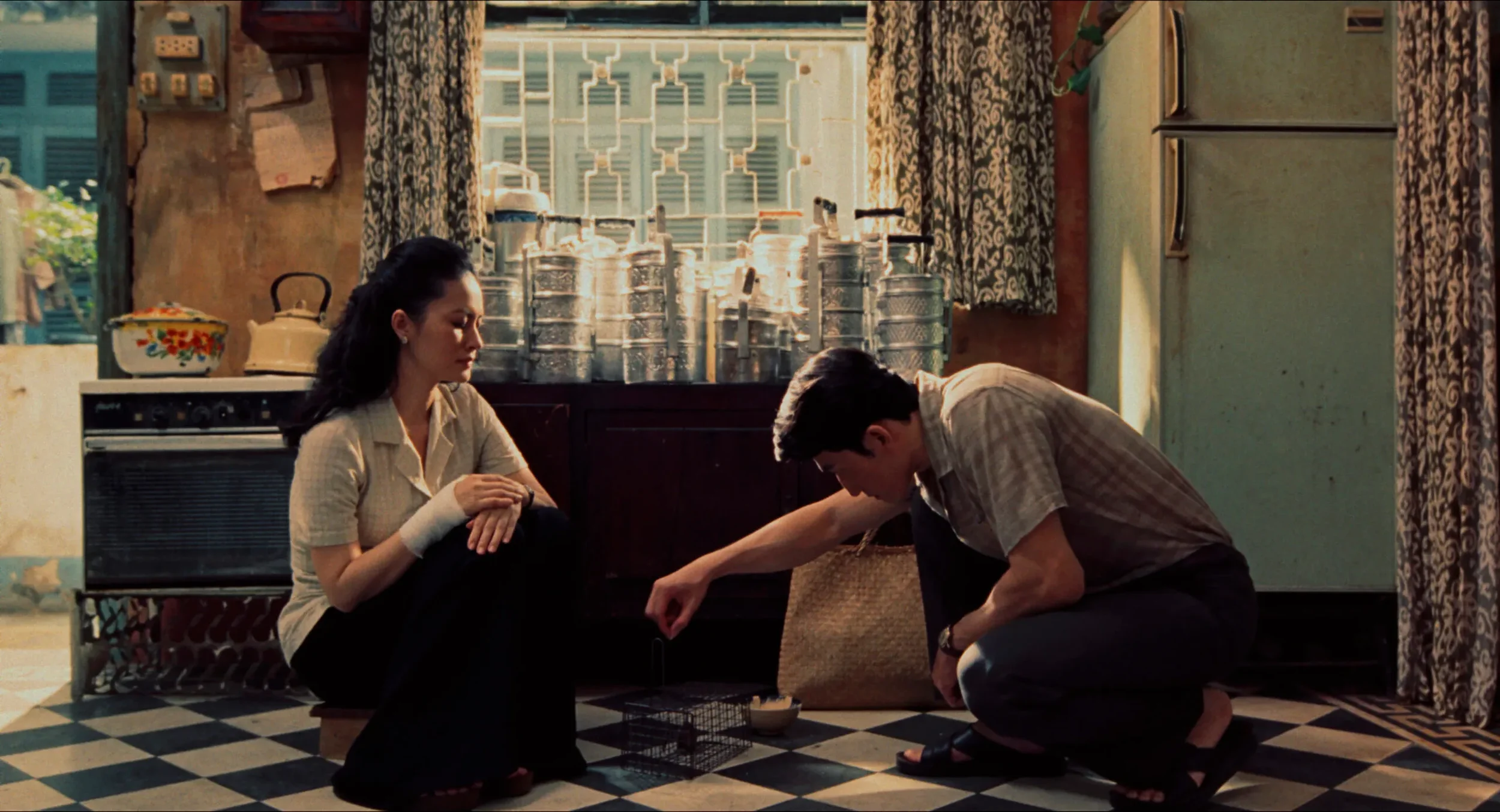‘The Whale’ REVIEW: A manipulative spectacle of body horror and hyperbolic characters
‘The Whale’ REVIEW: A manipulative spectacle of body horror and hyperbolic characters
This review contains major spoilers for Aronofsky’s “The Whale.”
Redemption is an element that creates unwavering feelings of catharsis when done right in a film. From Red learning to free himself from prison institutionalization in Frank Darabont’s “The Shawshank Redemption,” to the efforts exerted by Oskar Schindler in saving the lives of 1,200 Jews in Spielberg’s “Schindler’s List,” the viewers are subjected to an overwhelming number of emotions when a character not only atoned from their sin, but also took action to do what is right. That is why the ending of films about redemption are satisfying and memorable—their protagonists, while flawed and human, did their best to correct their wrongdoings and repair what has been already damaged.
But when is the right time to attempt a redemption arc for a character? A week before your deathbed it seems, as director Darren Aronofsky showed in his recent film “The Whale,” which is adapted from a play of the same title written by Samuel D. Hunter. The film follows the remaining days of Charlie (Brendan Fraser), an extremely obese gay man handling an online literature class and the imminent death from his extreme food consumption. Faced with his inevitable fate, he attempts to connect with his daughter, Ellie (Sadie Sink), after she went for an unexpected visit. Secrets begin to uncover the true reason behind Charlie’s grim situation as he interacts with his apartment visitors—his nurse friend, Liz (Hong Chau), estranged missionary, Thomas (Ty Simpkins), his ex-wife, Mary (Samantha Morton), and Ellie—in his final moments.
From Nina (Natalie Portman) of “Black Swan” to Randy (Mickey Rouke) of “The Wrestler,” Aronofsky is not shy of depicting characters who self-destruct and spiral out of control. And as expected, “The Whale” continues this pattern as Charlie succumbs to an agonizing 8-year journey of self-sabotage by ingesting huge amounts of junk food and take-outs to forget and numb the pain caused by the death of his partner. It also didn’t help that he left both Mary and Ellie to live in isolation, further exacerbating his unhealthy eating habits. This unhealthy habit of Charlie goes beyond food consumption, which is evident in the opening sequence: the inability to stand without any support, jerking off to gay porn in the afternoon, having a heart attack after climaxing, and needing the help of a door-knocking missionary to calm his heart by reading him an “honest” Moby Dick review.
Authenticity is a topic of discussion for every character that we see throughout the film. It begins with Charlie, as he preached being honest to his online Literature class meeting, while simultaneously lying through his teeth about the reason why he cannot open his laptop webcam and show his face to the class. He also seemed to have that specific Moby Dick essay memorized into his head that helped him collect his thoughts and calm his nerves, attributing it to it’s the author’s authenticity. This also extends to his visitors and their true intention of continuously visiting Charlie, maybe except for Liz because he just wants Charlie to go to the hospital and save himself from his deteriorating condition. Thomas is not technically a door-to-door missionary when he met Charlie and Ellie lies about her real reason of visiting her dad, no matter how repulsed she is about him—and it’s not about him doing her essays. Even Mary, despite being in Charlie’s house the shortest, admitted to missing his affection and his cooking. Even the pizza delivery man, Dan (Sathya Sridharan), and Charlie’s students from his online Literature course, showed an honest response of disgust when they learned of his appearance.
Still from Aronofsky’s “The Whale,” courtesy of A24/TBA Studios.
For his comeback film, Brendan Fraser showed a successful return as the main lead—his first since 2013. Evident in his Oscar nomination for this film, Fraser mastered his “nice guy” of a character that always get stepped on, familial or not. His facial expressions, especially his eyes, completely captured the emotion of a man who is exhausted of living, especially during moments where he is alone on screen. His sad demeanor after hearing berating comments made by Ellie felt raw that you can visualize that it is your own parent that is being degraded and called disgusting. You can empathize with his character, as he has seemingly lost everything—most notably the respect of his family and own—after his partner’s demise.
Chau is another actor who understood her role as Charlie’s only shoulder that he could lean on. The pain of seeing her own friend die of overeating after experiencing the death of her own brother from starvation is translated in ways that you can imagine yourself in her shoes. The desperation from her character is truly felt, especially during Charlie’s near-death scenes, where Liz’s panicked movement and determination from stopping Charlie’s death are some of the scenes that are exhilaratingly frightening, considering how Charlie is one candy bar away from a heart attack. Her on-screen dynamic with Fraser is what produced emotions of despair and hopelessness the most.
Still from Aronofsky’s “The Whale,” courtesy of A24/TBA Studios.
Unfortunately, the praise stops here. While Fraser and Chau’s acting in this film was commendable, the other actors felt like they are on a stage play, rather than a feature-length film. Sink’s performance is the most noticeable, as her scenes are extremely contrived, especially during Thomas’ real identity. Almost all her action in that segment, including forcing him to smoke weed and secretly recording their conversation, looked unnatural that the scene fell flat instead of being a shock factor. Her attempt at being a despicable teenager also felt artificial that her cruelty to both Charlie and Thomas is laughable, instead of the audience despising her character. Her cartoonish line deliveries may seem good when you are watching it on a play, but it just seemed to be overly exaggerated mess that makes her angry expression looked like a TikTok skit where cuts every after sentence are needed to make it a bit better, the more she says that her dad is disgusting.
Speaking of Ellie’s dad, the film, and Aronofsky by extension, did nothing but ridicule Charlie the entire 2-hour runtime. For a film that attempts to advocate against obesity and homophobia, it absolutely did the opposite. People who are either gay or obese—or both—could be extremely triggered and may even adapt the unhealthy habits of the main character after seeing this. Films should not conform to anyone, but how can you not feel resentment seeing protagonist reduced to their worst traits and dehumanized to the point that the film title is not subtle anymore. Charlie is seen just as a victim who just want to die and his only redeeming character is that he will leave a hundred thousand dollars solely to his daughter to compensate his 8-year absence from her life.
Still from Aronofsky’s “The Whale,” courtesy of A24/TBA Studios.
Even during the opening, we are manipulated to feel pity towards a man who experienced a heart attack after jerking off and this continued as he is subjected to extreme emotional cruelty—hurtful words from his daughter, disappointed looks from Liz, disgusted stares from his students after his face reveal. Charlie’s continued optimism and always-looking-on-the-bright-side personality is psychologically detrimental and exhausting to himself and other people. Negative emotions help us understand adapt to certain situations, and Charlie ignorance to his daughter’s extremely rebellious teenage angst and his own deteriorating physical health costed his life in the end.
Still from Aronofsky’s “The Whale,” courtesy of A24/TBA Studios.
The ending culminates the film’s emotional manipulation and justification of Charlie’s actions. His last moments were spent with a revelation that the Moby Dick essay he has memorized is written by his daughter 8 years ago. This reveal is an absolute tear-jerker, as Charlie attempts to stand up without any support and walk towards his daughter, who is reading the essay she wrote just before her dad left her. This supposedly cathartic ending should’ve ended with a shot of both Ellie and Charlie standing and facing each other, but Aronofsky decided to add unnecessary scenes that muddled what should be the moment for the audience to process what happened. Basing on reviews written for its stage-play counterpart, the levitating effect and the seaside flashback was not part of the source material, and this addition robbed the audience of the screenwriter’s original intent of suffocating the audience with emotional turmoil and pressure by just ending it abruptly. The feel-good shots of Charlie’s past and implications of going into heaven also seemed out-of-place in a film where he is subjected to constant emotional abuse by almost every character he spent his last week with.
This film had every potential to be good and the actors did their very best in adapting to what is given to them. Themes of authenticity, empathy, and acceptance should inspire audience to feel and do something about the prominent issues tackled in the plot, but the lack of sincerity in handling topics that matter resulted into a depressing-only film with nothing else to say. Aronofsky had the chance to say something about seclusion and bad habits (overeating in this case) as means of self-destruction like he did on his previous films. Unfortunately, the film only dumped a whale-sized amount of emotional trauma and bad vibes that should only be seen once in a lifetime.
Aronofsky’s “The Whale” now showing in 56 Philippine cinemas since February 22, Wednesday.


















